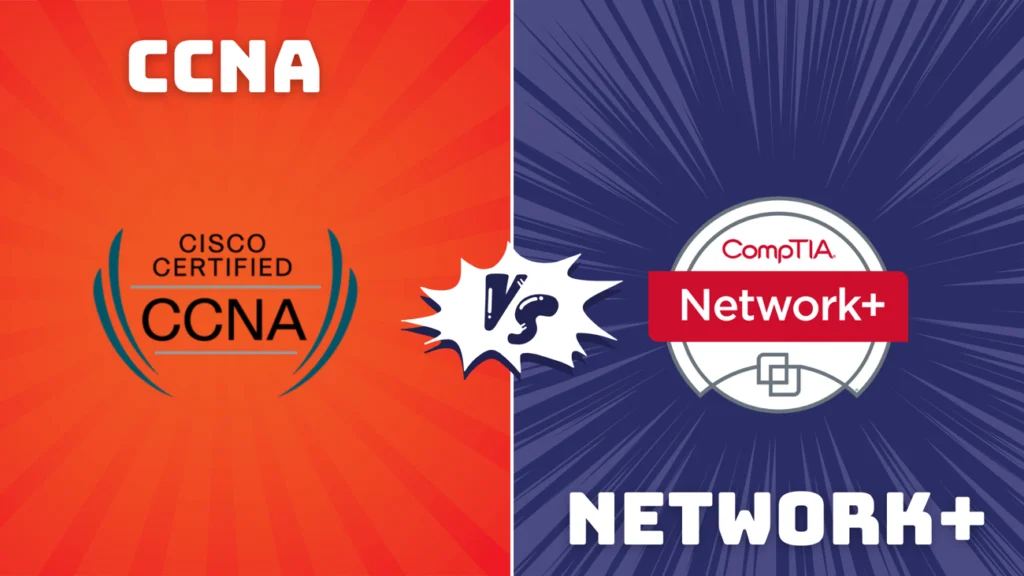Cisco is a prominent provider of networking solutions, including Virtual Private Network (VPN) technologies. VPNs enable secure and private communication across public networks like the internet. Cisco offers a diverse range of VPN solutions with various features and capabilities to accommodate businesses of different sizes and requirements.
These solutions cater to needs such as connecting remote offices, facilitating secure remote access for employees, and ensuring data privacy and security. Cisco’s VPN solutions are engineered to deliver secure and dependable connections for businesses, enabling seamless communication and collaboration across multiple locations. These VPNs ensure data privacy and security during transmission over public networks, which is crucial for organizations handling sensitive information such as financial data, customer details, or intellectual property.
By implementing Cisco’s VPN solutions, businesses can safeguard their data against unauthorized access and maintain the confidentiality of their communications.
Key Takeaways
- Cisco offers a range of VPN solutions for businesses to secure their networks and enable remote access.
- VPNs provide benefits such as enhanced security, remote access, and cost savings for businesses.
- Choosing the right Cisco VPN solution involves considering factors such as scalability, security features, and compatibility with existing network infrastructure.
- Implementing Cisco VPN solutions in your network requires careful planning, configuration, and testing to ensure seamless integration.
- Securing your network with Cisco VPN solutions involves implementing best practices such as strong authentication, encryption, and regular security updates.
Understanding the Benefits of VPNs
Secure Remote Connections
One of the primary benefits of using a VPN is the ability to securely connect remote offices and employees. This allows for seamless collaboration and communication across different locations, without compromising the security of the data being transmitted.
Remote Access and Flexibility
Additionally, VPNs enable secure remote access for employees, allowing them to work from anywhere while still maintaining a secure connection to the company’s network.
Ensuring Data Privacy and Security
Another key benefit of using a VPN is the ability to ensure the privacy and security of your data. By encrypting data as it is transmitted over the network, VPNs prevent unauthorized access and eavesdropping. This is particularly important for businesses that handle sensitive information, as it helps to protect against data breaches and unauthorized access to confidential information.
Choosing the Right Cisco VPN Solution for Your Business

When it comes to choosing the right Cisco VPN solution for your business, there are several factors to consider. First and foremost, you’ll need to assess your business’s specific needs and requirements. Consider the number of remote offices or employees that need to be connected, as well as the level of security and privacy required for your data.
Additionally, consider the scalability and flexibility of the VPN solution, as well as any specific features or capabilities that may be important for your business. Cisco offers a range of VPN solutions to meet the needs of businesses of all sizes. For smaller businesses with relatively simple networking needs, Cisco’s Small Business RV Series VPN Routers may be a good fit.
These routers offer secure connectivity for small offices and remote workers, with easy setup and management. For larger businesses with more complex networking requirements, Cisco’s Adaptive Security Appliance (ASA) may be a better option. The ASA offers advanced security features and high-performance connectivity, making it suitable for larger networks with more demanding security needs.
Implementing Cisco VPN Solutions in Your Network
Implementing Cisco VPN solutions in your network requires careful planning and consideration. Before deploying a VPN solution, it’s important to assess your network infrastructure and ensure that it can support the new VPN connections. This may involve upgrading hardware, such as routers or firewalls, to ensure that they can handle the increased traffic and security requirements of the VPN.
Additionally, you’ll need to consider how the VPN will integrate with your existing network infrastructure, including any existing security measures or policies. Once you’ve assessed your network infrastructure and determined the best Cisco VPN solution for your business, it’s time to deploy the solution. This may involve installing new hardware, such as VPN routers or firewalls, as well as configuring the software settings for the VPN connections.
It’s important to follow best practices for network security during the deployment process, to ensure that the VPN is properly secured and integrated with your existing network. Additionally, you’ll need to provide training and support for employees who will be using the VPN, to ensure that they understand how to connect securely and use the VPN effectively.
Securing Your Network with Cisco VPN Solutions
Security is a top priority when it comes to implementing a VPN solution in your network, and Cisco’s VPN solutions offer a range of features to help secure your network. One key feature of Cisco’s VPN solutions is encryption, which ensures that data transmitted over the VPN remains private and secure. By encrypting data at both ends of the connection, Cisco’s VPN solutions prevent unauthorized access and eavesdropping on communications.
Additionally, Cisco’s VPN solutions offer advanced authentication and access control features, allowing businesses to control who can access the network and what resources they can access. In addition to encryption and access control features, Cisco’s VPN solutions also offer advanced threat protection capabilities. This includes features such as intrusion prevention systems (IPS) and firewall capabilities, which help to protect against unauthorized access and malicious attacks on the network.
By using Cisco’s VPN solutions, businesses can ensure that their network remains secure and protected from external threats. Additionally, Cisco offers ongoing support and updates for their VPN solutions, helping businesses stay ahead of emerging security threats and vulnerabilities.
Troubleshooting and Maintaining Cisco VPN Solutions

Proactive Troubleshooting and Maintenance
Once your Cisco VPN solution is deployed in your network, it’s essential to have a plan in place for troubleshooting and maintaining the solution. This involves monitoring the performance of the VPN connections, identifying any issues or bottlenecks in the network, and addressing any security vulnerabilities that may arise.
Utilizing Cisco’s Tools and Resources
Cisco offers a range of tools and resources to help businesses troubleshoot and maintain their VPN solutions, including diagnostic tools and support services. These resources can be invaluable in identifying and resolving issues quickly and efficiently.
Regular Updates and Performance Tuning
In addition to troubleshooting issues as they arise, it’s crucial to have a proactive approach to maintaining your Cisco VPN solution. This involves regularly updating software and firmware for your VPN hardware to ensure it remains secure and up-to-date with the latest security patches. Regular monitoring and performance tuning can also help ensure that your VPN solution continues to meet the needs of your business, providing reliable and secure connectivity for remote offices and employees.
Future Trends in Cisco VPN Solutions
As technology continues to evolve, so too do Cisco’s VPN solutions. One future trend in Cisco’s VPN solutions is the integration of artificial intelligence (AI) and machine learning capabilities. This may include advanced threat detection and response features, using AI algorithms to identify and respond to potential security threats in real-time.
Additionally, Cisco is likely to continue improving the performance and scalability of their VPN solutions, allowing businesses to connect more users and devices securely across their networks. Another future trend in Cisco’s VPN solutions is the increasing focus on cloud-based connectivity. As more businesses move their operations to the cloud, there is a growing need for secure connectivity between on-premises networks and cloud-based resources.
Cisco is likely to continue developing cloud-based VPN solutions that provide secure connectivity between on-premises networks and cloud environments, enabling businesses to take advantage of the scalability and flexibility of cloud computing without compromising on security. In conclusion, Cisco’s VPN solutions offer a range of benefits for businesses looking to secure their communications and connect remote offices and employees securely. By carefully choosing the right Cisco VPN solution for your business, implementing it effectively in your network, securing your network with advanced features, troubleshooting and maintaining the solution proactively, and staying ahead of future trends in VPN technology, businesses can ensure that their communications remain private and secure in an increasingly connected world.
If you’re interested in learning more about Cisco’s networking solutions, you may want to check out this article on Cisco’s new routers revolutionizing networking. This article explores the latest advancements in Cisco’s router technology and how it is changing the landscape of networking. Understanding and Implementing Cisco’s VPN Solutions is just one aspect of Cisco’s comprehensive networking offerings, and this article provides valuable insight into the broader scope of Cisco’s innovations.
FAQs
What is a VPN?
A VPN, or Virtual Private Network, is a technology that allows for secure and private communication over a public network, such as the internet. It creates a private network from a public internet connection, allowing users to send and receive data as if their devices were directly connected to a private network.
What are the benefits of using a VPN?
Using a VPN provides several benefits, including enhanced security and privacy, the ability to bypass geographical restrictions, and the ability to access a private network remotely. It also helps protect sensitive data from unauthorized access and can improve network performance for remote users.
How does Cisco’s VPN solution work?
Cisco’s VPN solution uses various technologies, such as IPsec, SSL, and MPLS, to create secure and encrypted connections for remote access, site-to-site connectivity, and secure communication over public networks. It includes a range of hardware and software solutions to meet different business needs.
What are the different types of VPN solutions offered by Cisco?
Cisco offers several VPN solutions, including remote access VPN, site-to-site VPN, and clientless VPN. Remote access VPN allows remote users to securely connect to the corporate network, while site-to-site VPN connects multiple sites over the internet. Clientless VPN provides secure access to web-based applications without the need for a client software.
How can businesses implement Cisco’s VPN solutions?
Businesses can implement Cisco’s VPN solutions by selecting the appropriate hardware and software components, configuring the VPN connections, and ensuring proper security policies and access controls are in place. They can also leverage Cisco’s expertise and support services for implementation and ongoing management of the VPN solution.













